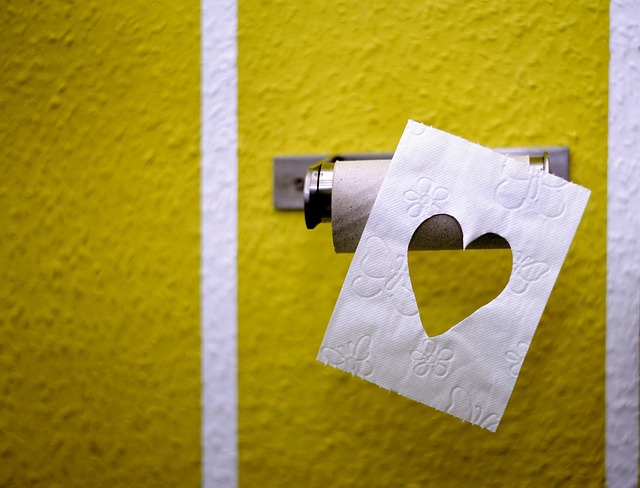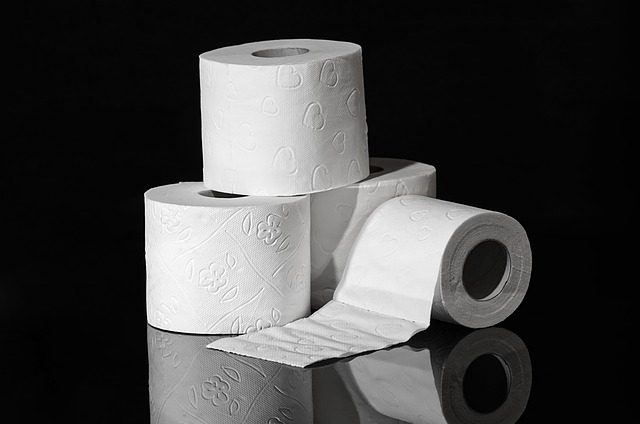Revolutionize Events with Compostable Toilet Seat Covers

Event organizers increasingly focus on sustainable practices, including choosing biodegradable toile…….
In the pursuit of a greener future, innovative solutions are emerging in the realm of sanitation, particularly at public events where managing waste and maintaining hygiene can be challenging. One such groundbreaking concept is the development of compostable toilet seat covers designed specifically for events. These covers offer an eco-friendly alternative to traditional disposable options, addressing environmental concerns while ensuring user comfort and safety. This article aims to provide a comprehensive exploration of compostable toilet seat covers for events, delving into their definition, global impact, technological innovations, regulatory landscape, challenges, successful applications, and future prospects. By the end, readers will grasp the significance of this sustainable approach in event management and its potential to revolutionize sanitation practices worldwide.
Compostable toilet seat covers are biodegradable or compostable materials designed to line toilet seats at events, such as music festivals, sports gatherings, and public concerts. These covers serve the dual purpose of enhancing hygiene by preventing direct contact with potentially contaminated seats and promoting environmental sustainability by breaking down naturally over time. The core components typically include:
The concept of compostable toilet seat covers emerged as a response to the growing global awareness of environmental issues and the need for sustainable waste management. Traditional disposable toilet seats, often made from plastic, contribute significantly to plastic waste, posing challenges for efficient disposal and recycling. Compostable alternatives address these concerns by offering a biodegradable solution that aligns with the circular economy principles.
Their significance lies in several key areas:
The adoption of compostable toilet seat covers for events has gained traction globally, driven by environmental policies, consumer awareness, and the increasing responsibility of event organizers to minimize their ecological footprint. Key regions leading this trend include Europe, North America, and Australia, where stringent environmental regulations and a culture of sustainability have fostered the early acceptance and growth of these products.
The global market for compostable toilet seat covers is experiencing substantial growth, driven by:
| Year | Market Size (in millions of USD) | Growth Rate (%) |
|---|---|---|
| 2018 | 50 | – |
| 2020 | 120 | 140% |
| 2022 | 250 | 105% |
| Projected 2025 | 450 | 75% |
This rapid growth indicates a significant shift towards sustainable sanitation solutions in the events industry.
The compostable toilet seat cover market is characterized by:
The cost of compostable toilet seat covers varies based on material type, thickness, and design:
Implementing compostable toilet seat covers offers economic advantages:
The heart of compostable toilet seat covers lies in the innovative use of biodegradable materials, which have seen significant advancements:
Manufacturers are continuously refining production processes:
The future holds immense potential for technological advancements:
The development and adoption of compostable toilet seat covers are influenced by various policies and regulations:
Key legislative aspects include:
Despite significant progress, compostable toilet seat covers face certain challenges:
Criticisms and potential solutions:
Festival X, a renowned music festival in Canada, implemented compostable toilet seat covers as part of its sustainability initiative. With over 50,000 attendees, they provided a unique branded cover for each toilet seat, along with extensive signage and staff training. The event saw:
The 2020 Tokyo Olympics embraced sustainability in all aspects, including toilet seat covers. They partnered with local manufacturers to produce compostable covers for all venues, ensuring:
This annual music festival in Berlin implemented a comprehensive waste management strategy, including compostable toilet seat covers and on-site composting facilities. Their success included:
The future outlook for compostable toilet seat covers for events is promising:
Compostable toilet seat covers for events represent a significant step towards a more sustainable future in event management. As the world grapples with mounting environmental challenges, these innovative solutions offer a practical and eco-friendly approach to waste reduction and resource conservation. The global market’s rapid growth, technological advancements, and successful case studies underscore their potential as a viable alternative to traditional disposable options.
By navigating challenges, embracing new technologies, and fostering strategic partnerships, the compostable toilet seat cover industry can continue its upward trajectory. As event organizers and attendees become increasingly environmentally conscious, these covers are poised to become an integral part of the events landscape, contributing to a greener world one seat at a time.
Q: Are compostable toilet seat covers more expensive than regular plastic seats?
A: While the initial cost may be higher, considering long-term savings on waste management and potential government incentives, compostable covers can be a cost-effective solution for events.
Q: Can these covers withstand outdoor conditions?
A: Yes, many manufacturers test their products to ensure durability in various weather conditions. Advanced biodegradable materials are designed to withstand exposure, making them suitable for outdoor events.
Q: How do I properly dispose of compostable toilet seat covers?
A: Follow the instructions provided at the event or look for signage indicating nearby composting facilities. Generally, these covers should be placed in designated bins or collected by specialized waste management teams.
Q: Are there any certifications I can look for to ensure quality and compostability?
A: Yes, seek products with recognized certifications like ASTM D6400 or EN 13432, ensuring they meet international compostability standards. Reputable manufacturers will display these certifications on their packaging.
Q: Can compostable toilet seat covers be used in all types of events?
A: Absolutely! From music festivals and sporting events to conferences and trade shows, these covers are versatile and suitable for any gathering where sustainable waste management is a priority.

Event organizers increasingly focus on sustainable practices, including choosing biodegradable toile…….

Event organizers are adopting compostable toilet seat covers as an eco-friendly solution, reducing w…….

Festival organizers can significantly reduce plastic pollution and enhance event sustainability by a…….

Event organizers can boost guest experiences and embrace eco-friendly practices by using compostable…….

Event planners increasingly opt for sustainable solutions like compostable toilet seat covers to min…….

Event organizers are increasingly opting for compostable toilet seat covers to reduce plastic waste…….

Compostable toilet seat covers for events offer a sustainable solution to reduce plastic waste. With…….

Eco-friendly events combine aesthetics and environmental responsibility through sustainable decor li…….

The text promotes compostable toilet seat covers for events as an eco-friendly alternative to plasti…….